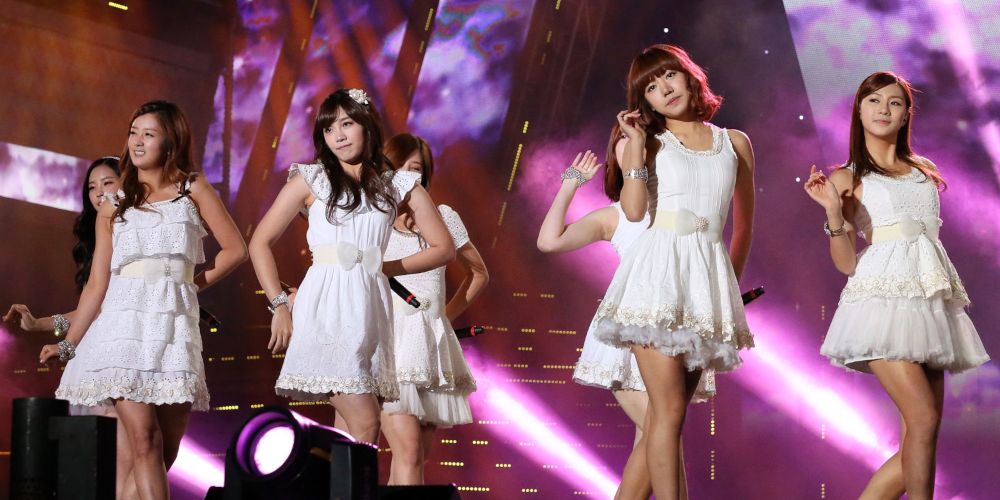Just a few months ago, I wrote this in a previous WhatNerd article:
I don't like K-pop. There, I said it. Despite being Korean by blood, I've never quite bought into any Korean pop culture. [...] I have no idea how K-Pop exploded into a global phenomenon.
Now I'm a full-blown K-pop addict and I have no idea how I got here. As it turns out, there's a lot to love about K-pop, and a lot of people—including myself just a few months ago—have a lot of unfair misconceptions about what K-pop entails and why it's growing so popular worldwide.
Why People Love K-Pop
So what makes K-pop so different than, say, Western pop?
K-Pop Production Is Off the Charts
The K-pop industry is serious business, and a lot of time and money is poured into every production. Compared to Western pop, K-pop media is on a completely different level.
The music videos are insanely creative, the choreographies are mind-blowing, the music itself is catchy as hell, and the promotional efforts leave Western pop in the dust.
K-pop is Western pop on steroids: commercialized to such an absurd degree that the results are qualitatively unfamiliar.
K-Pop Is Engineered for Addiction
The Korean media agencies know what they're doing—they have decades of intense experience under their belts—and they're a lot more intentional in what they produce.
Sure, Western pop artists also want to sell lots and gain fans, but K-pop agencies have entire groups dedicated to "testing the waters" to see what kinds of music will be received well. And then similar songs are created and given to the bigger groups to perform, which turn into smash hits.
Every aspect of K-pop—from the melodies to the beats, from the member visuals to the dance choreographies—is meticulously created for maximum addictive draw.
K-Pop Is More Willing to Experiment
In Western pop, each artist and band is expected to have its own "sound." They might evolve over time, but the general assumption is that a pop-punk band will always produce pop-punk songs, and an R&B artist should stick to R&B songs.
Not so with K-pop, where groups take on certain "concepts" for certain albums—or even for individual tracks. Two songs on the same album can sound radically different, and a group's concept in 2020 could be the polar opposite of what they were in 2019.
This willingness to experiment results in a wider variety of music styles, despite the fact that K-pop is heavily commercialized ("manufactured"). As a result, I find K-pop to be far less cookie cutter than Western pop, surprisingly enough.
K-Pop Idols Are Multi-Talented
There are multi-talented artists in Western pop, but they're the exception rather than the norm. K-pop artists are expected to be multi-talented: singers, dancers, modeling, acting, and more.
In Western pop, singers are scouted for their vocals, and singing is all they need to do. In K-pop, rookies must go through many years of "training" with one of the many K-pop media agencies before they're allowed to "debut."
This rigorous system is ethically controversial, but there's no question that it produces results; it all feeds back into K-pop's insane production quality.
K-Pop Isn't a Music Genre
I think the most important takeaway is that K-pop itself isn't really a genre; it simply describes Korean music in pop culture, where each individual song can include different musical genres.
To say "I love K-pop!" doesn't mean much anymore, given the massive variety of styles within K-pop itself.
Here are some examples of the best K-pop on offer, spanning a wide range of styles and concepts.
1. "Piri" by Dreamcatcher
Style: Pop rock
2. "Female President" by Girl's Day
Style: Pop rock
3. "Peek-A-Boo" by Red Velvet
Style: Electropop
4. "Chococo" by Gugudan
Style: Electropop
5. "I Love You" by 2NE1
Style: Synthpop
6. "Monster" by EXO
Style: Trap pop
7. "Growl" by EXO
Style: R&B
8. "April Fools" by Jimin Park
Style: R&B
9. "Decalcomanie" by Mamamoo
Style: R&B
10. "Romeo and Juliet" by Clazziquai
Style: Jazz pop
11. "Circle's Dream" by Subin
Style: Indie pop
12. "Miniskirt" by AOA
Style: Groove pop
13. "#LoveMe" by Melody Day
Style: Groove pop
14. "History" by EXO-K
Style: Dance-pop
15. "The Chaser" by Infinite
Style: Dance-pop
16. "Love Scenario" by iKON
Style: Soft pop
17. "Dinosaur" by AKMU
Style: Soft pop
18. "Heart Shaker" by Twice
Style: Bubblegum pop
19. "Echo" by Oh My Girl
Style: Bubblegum pop
20. "3 Strike Out" by Laboum
Style: Bubblegum pop

